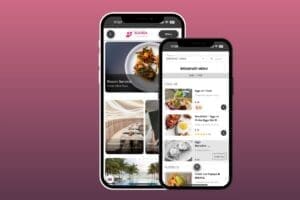 Globalisation is a reality in the world we live in today. We now see most of our household products owned byÊten or so multinational companies. Such companies have marketing budgets that would rival the total annual revenue of many publically listed companies.
Globalisation is a reality in the world we live in today. We now see most of our household products owned byÊten or so multinational companies. Such companies have marketing budgets that would rival the total annual revenue of many publically listed companies.
However, over the lastÊfive years there has been a shift away from popular mass produced household brands, to more boutique and locally produced niche products that are often of higher quality. A recent study by the Australian Financial Review on food and health highlighted that the origins of food and beverages (domestic versus imported) and locally sourced produce were the two top issues for consumers after minimisation of food wastage.Ê
Here are a few key reasons why the market is rapidly shifting:
Buying local – supporting local business
Consumers are now, more than ever, looking to purchase products they perceive as being ‘local’. Supporting the ‘local guy’ has become a main driver for consumers in today’s economic climate. In addition, consumers take more care and consideration in the production process when purchasing niche products. And while the subconscious to support local has always been there, in today’s tough competitive environment where jobs are constantly being replaced by technology, there has never been a better time to support the ‘local guy’.ÊThe by-product of buying local is supporting the local community, as well as keeping the money onshore, away from multinationals.
Quality
Like the wine industry in the 1990s, the coffee sector is one such example where consumers are increasingly educated and particularly sensitive to quality. The global increase in coffee bean production has led some manufacturers to produce lower quality products to be sold in response to the desire for cheaper coffee. On the flip side, consumers have developed a sophisticated coffee palate and rightly perceive quality to come from the boutique roasters in our metropolitan cities. A very visible example of the move towards demanding quality, is the emergence of boutique burger bars offering variety in their menu. This has forced McDonalds to introduce a make your own menu with various trending options such as angus beef burgers and brioche buns. If you’re not meeting consumer needs when it comes to quality, the potential to lose market share is high.Ê
The emergence of ‘white label’ products
Many businesses in the hospitality industry traditionally integrate household brands into their business. This is due to the belief that consumers are more familiar with households brands and therefore more confident in what they will receive. A white label solution permits a business to place their brand on a product or service that is produced externally for a fee. Many businesses, particularly in the Hospitality sector, have seen the benefit in white label solutions for their various operational divisions.
Below are some of the advantages white label solutions provide your business:
¥ Brand visibility
Brand visibility is an important part of any business in today’s competitive environment and there are many ways to achieve it. One option is to offer products that are utilised in your business that can be transported into the homes of your clients. An example of this can be highlighted by the hotel amenities, toiletries for example, that guests take with them for use in their own homes. This acting as a positive and constant reminder of their stay at the hotel.Ê
¥ Provides choice
White labelling provides businesses with choice of product and levels of quality attached to that product. To promote loyalty with clients, businesses have the opportunity to connect their brand to a boutique experience rather than providing an off the shelf ‘one size fits all’ solution. By spending the time addressing such factors you are increasing brand loyalty and improving the overall brand experience. This consideration cannot be ignored when your brand is referenced over the many social media platforms at the fingertips of your clients today.
White label solutions allow you to leverage off the expertise of those that spend their careers developing and understanding their given products. Most products of a white label nature can be retailed as opposed to giveaways adding to your bottom line.
¥ Loyalty
White label products add value to your business by promoting loyalty – providing you invest in quality branding, your clients will associate that experience every time they see or use the product. Just make sure what you are offering is also quality!Ê
¥ Attention to detail
Like many industries today, the fight for market share and the need to stand out from the competition has never been more evident. Hospitality is an industry that is experiencing the entry of more hotel brands, along with the biggest ever industry disrupter that is Airbnb. Hotel brands need to look for a point of difference in offering that adds a little bit extra to attract guests. Airbnb’s success has traditionally relied on the premise that guests are receiving a more intimate personalised experience that you would expect when staying with a host. With the big hotel brands such as Starwood and Hilton opening boutique properties, we will see an increased effort to break away from the cookie cutter mould of yesterday, where the guest expects and identifies the same experience from brand to brand, city to city. Adopting white label products designed and packaged specifically for hotel brands is a step in the right direction and one that demonstrates attention to detail and going that extra mile for your valued guests.
By Cameron Rudolph
Cameron Rudolph is the founder and Director of Melbourne based ‘The Branded Coffee Company’ (TBCC). Formally educated at the Blue Mountains International Hotel Management School, Cameron has extensive FMCG experience having previously been a founding partner of a Greenfields bottled water project in the South Pacific. Cameron has since combined his love of coffee, hospitality and sport to create TBCC. Cameron and the team at TBCC have a unique ability to identify new markets and successfully connect coffee lovers to existing market brands. Cameron and his team at TBCC were awarded the licenses for the AFL, NRL and A-League and now produce, market and distribute their products via the ecommerce websites of www.coffee.afl and www.myteamcoffee.com. Cameron’s understanding of the hospitality industry and changing consumer trends is delivering ongoing success for TBCC and its bespoke hospitality division.















